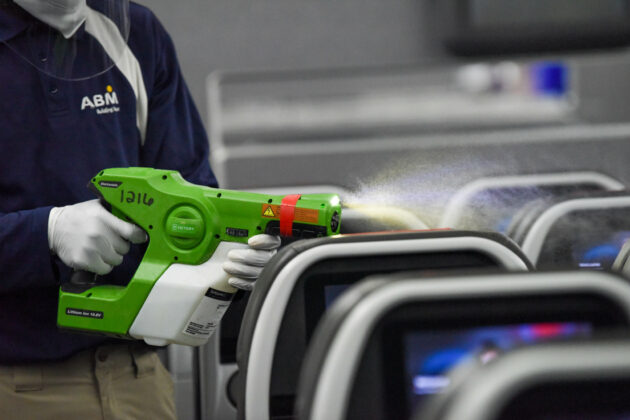Is it time to rethink cab cleanliness?
It there’s one maintenance requirement that’s come to the forefront during the Covid-19 pandemic, it’s the importance of cab cleanliness. The truck cab is the driver’s domain and needs to be a safe environment in which to work and live.
Technicians may not like it, but they have a role to play in ensuring the trucks they work on are cleaned and disinfected after that work is performed. But the way we clean trucks has not kept pace with the technological advances of the trucks themselves.
It’s not sufficient to douse the interior in bleach. Truck OEMs warn the fumes from undiluted bleach can attach themselves to circuit boards and damage electronics. The Technology & Maintenance Council of the American Trucking Associations put together some best practices for cab cleaning, taking into consideration the proliferation of touch screens, electronics, and motorized parts in today’s trucks.
Kirk Altrichter, executive vice-president, fleet service with Kenan Advantage Group, shared some of those suggestions during TMC’s virtual spring meeting. In-cab surfaces can be wiped down with one-third of a cup of bleach diluted with a gallon of water. Shortly after, any bleach residue should be wiped clean with a mild soap and water mix.
The same can be used for the metal and plastic parts of the seatbelts, but Altrichter warns the bleach will discolor the seat belt straps if it comes into contact. Diluted bleach and mild soap/water can be used on switches and controls, the steering wheel, seat adjustment controls and door handles.

Use only mild soap and water on touchscreens, Altrichter warned, or alcohol-free LCD cleaners. Don’t use bleach on seat cushions; instead steam clean them or use fabric cleaners.
If a truck has been occupied by a Covid-positive driver, quarantine it for three to five days before cleaning. By then the virus will be inactive.
While the above cleaning tips are useful and practical, they’re also decidedly low-tech.
By contrast, the airline industry has been quick to adopt emerging cleaning products and systems, such as electrostatic sprayers and foggers. Last August, the EPA granted emergency authorization for use of a product that effectively kills the SARS-CoV2 virus for up to seven days after an application.
American Airlines immediately began using the spray on planes flying in and out of Texas, the only state where its use was permitted under the authorization.
Todd Goodwin, co-owner of Matrix Antimicrobial, told a TMC audience that traditional disinfectants still used today date back to the 1800s, and that while they effectively kill germs, the surface goes unprotected between applications. So, if your cleaning regime consists of simply wiping down surfaces with a disinfectant wipe, those surfaces are unprotected more often than not.
“It leaves us open to recontamination issues,” he said. “They’re not designed to give long-lasting results – they’re designed to give an instant microbial kill.”
They’re also frequently misused. Disinfectants requires a certain “dwell time” to kill germs, but that often gets overlooked in the interest if getting the truck back into service.
Biostatic barriers, on the other hand, can provide up to 90 days of protection. The invisible surface barrier they form kills harmful microbes on contact (like spikes popping a balloon), and in the U.S. has even been approved for use on food contact surfaces.
Covid-19 will hopefully soon become a nasty memory, but it has presented us the opportunity to rethink how we do things. Will we go back to wiping down cab surfaces like we always did, or explore more creative ways to keep drivers’ working environments safe and virus-free?
Have your say
This is a moderated forum. Comments will no longer be published unless they are accompanied by a first and last name and a verifiable email address. (Today's Trucking will not publish or share the email address.) Profane language and content deemed to be libelous, racist, or threatening in nature will not be published under any circumstances.